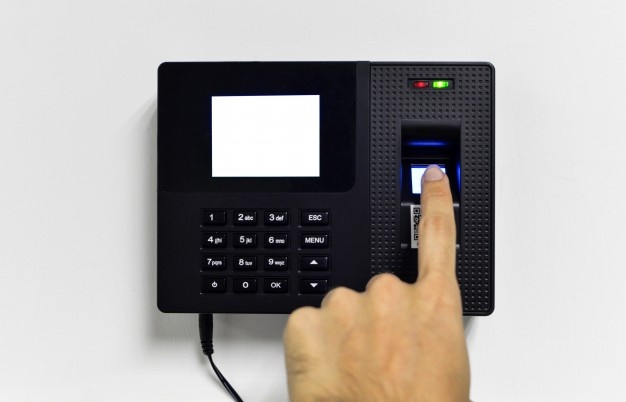Revolutionizing Employee Management: An In-Depth Look at Biometric Time Clocks
Introduction-
In the relentless pursuit of efficiency, businesses are always on the lookout for innovative solutions. One game-changer that has taken the world of employee management by storm is the biometric time clock. This isn't your grandad's punch-in system; we're talking about cutting-edge technology that utilizes unique biological traits to manage employee attendance and hours.
Imagine a world where 'buddy punching', that age-old trick of clocking in for a mate who's running late, is eliminated. With biometric time clocks, this becomes a reality. These devices leverage fingerprint, facial recognition, or even iris scanning technology to ensure the person clocking in is indeed who they claim to be. It's a level of accuracy that traditional time-tracking methods simply can't match.
But it's not just about preventing dishonesty. Biometric time clocks also streamline the entire process of employee management. They provide real-time data, allowing businesses to optimize scheduling, monitor overtime, and even manage leave applications more effectively. This level of detail is invaluable when it comes to strategic decision-making.
So, it's clear that biometric time clocks are revolutionizing the way businesses manage their employees. It's a bold step forward, one that promises more efficient, accurate, and fair time recording. This isn't just good news for businesses, but for employees too. After all, a system that ensures everyone's time is counted fairly is a win-win, wouldn't you agree?
In today's fast-paced world, businesses are constantly looking for ways to streamline operations and enhance efficiency. One area that often requires improvement is employee management, particularly in attendance and time tracking. This is where biometric time clocks come into play. But what exactly is a biometric time clock, and how can it revolutionize the way we manage our workforce? This comprehensive guide will delve deep into biometric time and attendance systems, their benefits, drawbacks, and why they are fast becoming an indispensable tools in modern businesses.
Understanding Biometric Time Clocks-
Biometric time clocks are tools that leverage biometric technology, such as fingerprints, facial recognition, or iris scans, to track and manage employee attendance. These devices replace traditional timekeeping methods like punch cards or manual logs, offering a more accurate and efficient way of recording when employees clock in and out. With this technology, time theft and 'buddy punching' become issues of the past, and businesses can enjoy more accurate payroll management.
The Importance of Accurate Time and Attendance-
In the realm of business, time is money. Inaccurate timekeeping can lead to overpayment, underpayment, or legal issues. Furthermore, it can also lead to decreased productivity and morale among employees. An efficient time and attendance system is crucial for ensuring fair compensation, fostering trust within the team, and monitoring employee productivity.
The Advantages of Biometric Time Clocks-
Biometric time clocks offer a myriad of benefits, including:
- Enhanced Accuracy: Biometrics provides a unique identifier for everyone, eliminating the risk of time theft or buddy punching.
- Improved Efficiency: Biometric time clocks streamline the attendance process, reducing administrative work and leaving more time for productive tasks.
- Cost Savings: By reducing time theft and administrative work, businesses can save significant amounts of money.
- Increased Security: Biometrics can also be used to control access to certain areas of the business, enhancing overall security.
Potential Drawbacks of Biometric Technology-
Despite the advantages, there are certain drawbacks to biometric technology. These can include initial setup costs, potential resistance from employees due to privacy concerns, and technical problems such as system crashes or failed scans.
Biometric Time Clocks and Security Concerns-
While biometric time clocks enhance security within the business, they also bring up concerns about the storage and use of biometric data. Businesses must implement robust data security measures and comply with privacy laws to ensure the protection of employee information.
The Future of Biometric Time Clocks-
As technology advances, biometric time clocks will continue to evolve. We can expect to see more sophisticated identification methods, better data security, and perhaps even integration with other business systems.
Conclusion-
Biometric time clocks are revolutionizing the way businesses manage their employees. They offer a more accurate, efficient, and secure way of tracking time and attendance, leading to cost savings and improved productivity. However, businesses must also navigate potential drawbacks and security concerns, and stay abreast of the evolving technology. With the right approach, a biometric time clock can be a powerful tool in the modern business arsenal.


.jpg)



Post a Comment